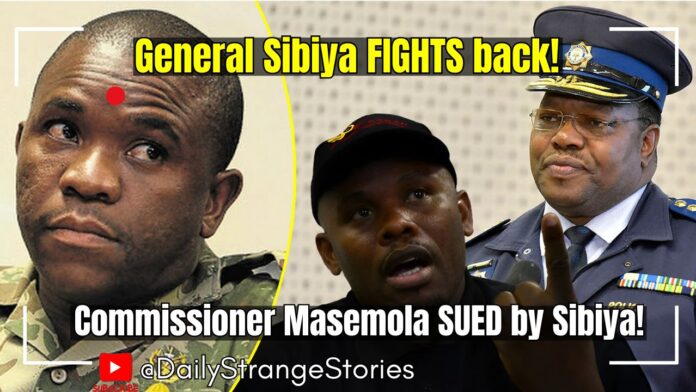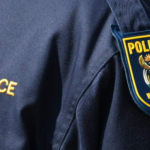As South Africa grapples with the ongoing battle against hidden networks of crime and power, a high-ranking police official has decided to fight back in court and sue his boss. Lieutenant General Shadrack Sibiya, the deputy national police commissioner for crime detection, has filed an urgent application in the Gauteng High Court in Pretoria to get back to his duties. This move comes after he was told to step aside earlier this month, following serious claims made by KwaZulu-Natal's top police officer, Lieutenant General Nhlanhla Mkhwanazi.
Those claims suggested that criminals had taken control of parts of the country's criminal justice system. Sibiya's legal action directly challenges National Police Commissioner General Fannie Masemola, accusing him of mishandling the situation and issuing unfair orders. What started as explosive statements at a press conference in Durban has now turned into a messy legal tangle, pulling in ministers, task teams, and allegations of deep-rooted syndicates that threaten the very foundations of law enforcement.
This story traces back to a special group known as the political killings task team, formed in 2018 to look into a series of targeted murders in KwaZulu-Natal. Over the years, this team handled 612 cases and achieved more than 100 convictions, helping to reduce the number of such killings in the province. President Cyril Ramaphosa has publicly noted the team's significant contributions, pointing out how their efforts led to a noticeable drop in these incidents. He described their work as tremendous during a meeting in the Northern Cape, emphasizing the need for quick investigations into recent complaints. Yet, despite these successes, the task team found itself at the center of a storm when orders came to shut it down.
The trouble escalated after team members were sent to Gauteng in April 2024 to help investigate the assassination of Vaal engineer Armand Swart in Vereeniging. Their work uncovered weapons linked not just to that murder, but to a chain of other high-profile crimes. This discovery pointed to a larger web, suggesting organized groups had infiltrated various levels of authority. According to details from the investigations, 121 case dockets related to these matters were suddenly removed from the team's control. Mkhwanazi later explained that this happened without his approval or that of the national commissioner, and the files ended up stored away at the police headquarters in Pretoria, where they reportedly sat untouched for months.
Sibiya, in his court papers, provides a different side to this narrative. He insists that the directive to disband the task team did not originate from him. Instead, he points to a letter dated 31 December 2024 from then-Police Minister Senzo Mchunu to Commissioner Masemola.
In that document, Mchunu observed that the team was no longer necessary and directed its immediate disbandment. He also requested a preliminary report on the matter. Sibiya claims he received an email from Masemola's office just three days later, on 3 January 2025, instructing him to inform the team of the deactivation and prepare a close-out report. Following this, Sibiya communicated with Crime Intelligence boss Major General Dumisani Khumalo, who faced his own legal issues last month over alleged improper appointments. In that message, Sibiya emphasized the need for proper handover procedures to ensure nothing was lost in the transition.
However, the handover did not go smoothly. Sibiya states he was not present when the dockets were actually transferred. Later attempts were made to move these files to KwaZulu-Natal's murder and robbery units, but Mkhwanazi reportedly turned them down. As a result, Masemola's office assigned the cases to Sibiya's department. The challenge, Sibiya argues, was a lack of funding for his team to handle such a large number of complex investigations. He maintains that expecting them to resolve 121 dockets in just three months was unrealistic, and he had no role in the decisions that limited his department's ability to proceed.
Adding layers to this intricate tale, Mkhwanazi's public statements highlighted connections between Sibiya and figures like power broker Brown Mogotsi and businessman Vusimusi 'Cat' Matlala, who faces charges related to attempted murder. These links reportedly came from data recovered from Matlala's cellphone. Matlala had been involved in a now-canceled R360 million contract with the South African Police Service, raising questions about business dealings intertwined with law enforcement. Mkhwanazi suggested these associations pointed to a broader syndicate controlling elements across the criminal justice chain, including politicians in Parliament, officers from the South African Police Service, metro police, and correctional services, as well as prosecutors and even members of the judiciary. He described this network as being orchestrated by a drug cartel based in Gauteng, with businesspeople playing key roles.
Sibiya strongly disputes these characterizations in his legal filing. He argues that any claims of his association with investigated individuals are baseless and lack evidence. He asserts that no such connections exist, and accusations implying dishonesty on his part are unfounded. Throughout his career, he has never acted against his employer's interests, he says. This denial forms part of his broader challenge to the actions taken against him, which he calls unlawful.
The fallout has led to dramatic developments. Members of the political killings task team attempted to secure arrest warrants for both Sibiya and Mchunu as far back as November 2024. Sources within the security sector reveal that these officers approached prosecutors in Gauteng and, more recently, in Mpumalanga. In one instance last month, a group traveling in a Mercedes-Benz V-Class Kombi sought warrants from the director of public prosecutions but were rejected due to insufficient evidence. Despite these setbacks, the team persisted, believing they had uncovered enough to pursue charges of defeating the ends of justice.
Mkhwanazi has indicated that evidence is still being gathered for a potential case against Mchunu, focusing on the origins of the disbandment order. He mentioned the involvement of an inter-ministerial committee, suggesting that clarity from relevant ministers is needed to determine if the shutdown was properly authorized. Once prosecutors are satisfied, a formal docket could be opened, leading to court proceedings that might reveal the true reasons behind the team's closure. In response, Sibiya has turned the tables, recommending that certain task team members face arrest for allegedly kidnapping a forensic services captain, taking his laptop, and deleting data that implicated some in unauthorized actions.
Mchunu, now on special leave, has rejected all allegations against him. He insists that he would never compromise his integrity or that of the police service based on unproven insinuations. Meanwhile, the task team, despite the disbandment directive, continues to operate in some capacity, defying the orders from last December 2024. Mchunu had set a deadline of 20 January 2025 for a final report on the closure, but that report has yet to materialize.
President Ramaphosa has stepped in to address the growing controversy. He established a judicial commission of inquiry, led by Deputy Chief Justice Mbuyiseli Madlanga, to examine the claims of political interference, criminal syndicates within law enforcement, and corruption in KwaZulu-Natal. The commission's terms of reference have been gazetted, and Ramaphosa expects an initial report within three months, followed by another within the next three months, aiming for a full resolution in no more than a year. If additional time is required, he plans to consult with the commission's head. This body is seen as crucial for providing answers that the public demands swiftly.
Sibiya's urgent court application, set to be heard on 26 August 2025, seeks to overturn what he describes as a disguised suspension ordered by Masemola. He was told to stay at home pending investigations, a move he says lacks legal basis since the commissioner does not have the authority to impose it. Sibiya accuses Masemola of bias, relying on unverified claims from Mkhwanazi's press briefing without proper scrutiny. He argues that this creates an unfair perception of guilt, putting his life at risk through death threats.
Without his assigned driver and protector, he feels exposed during this tense period. Furthermore, he contends that the suspension could hinder the commission's work and expose him to overlapping proceedings, which he wants the court to prevent.
The political ripple effects extend beyond the police. The Umkhonto weSizwe Party has filed a motion of no confidence against President Ramaphosa for choosing to place Mchunu on leave rather than dismissing him outright. They have taken the matter to the Constitutional Court, challenging both the special leave and the appointment of Professor Firoz Cachalia as acting police minister. The party demands an urgent parliamentary session within two weeks to debate and vote on the motion.
This unfolding saga reveals a complex interplay of power, where instructions from ministers filter down to commissioners and deputies, only to spark accusations of protection for criminal elements. The task team's discoveries in Gauteng, linking weapons from the Swart assassination to broader crimes, exposed what Mkhwanazi calls a calculated effort to shield syndicates. These groups reportedly span from drug cartels in Gauteng to influential figures in politics and justice, creating a chain that undermines investigations.
The attempts to arrest Sibiya and Mchunu underscore the desperation within the task team. Their journey to different provinces for warrants shows a determination to hold superiors accountable, even as prosecutors demand more proof. Sibiya's counter-claims about the kidnapping incident introduce yet another twist, suggesting internal conflicts and possible overreaches by the team.
This detailed account peels back the curtain on a system under siege, where dockets vanish into archives, letters dictate fates, and connections to figures like Mogotsi and Matlala raise eyebrows. From the Swart murder's weapon traces to the refused transfers and arrest attempts, every element builds a picture of entrenched challenges in South Africa's fight for justice.
What are your thoughts, do you think Commissioner Masemola was right in suspending General Sibiya, and do you think the Commission of Inquiry will do a better job than what General Mkhwanazi and his task team have achieved so far?

Follow Us on Twitter











